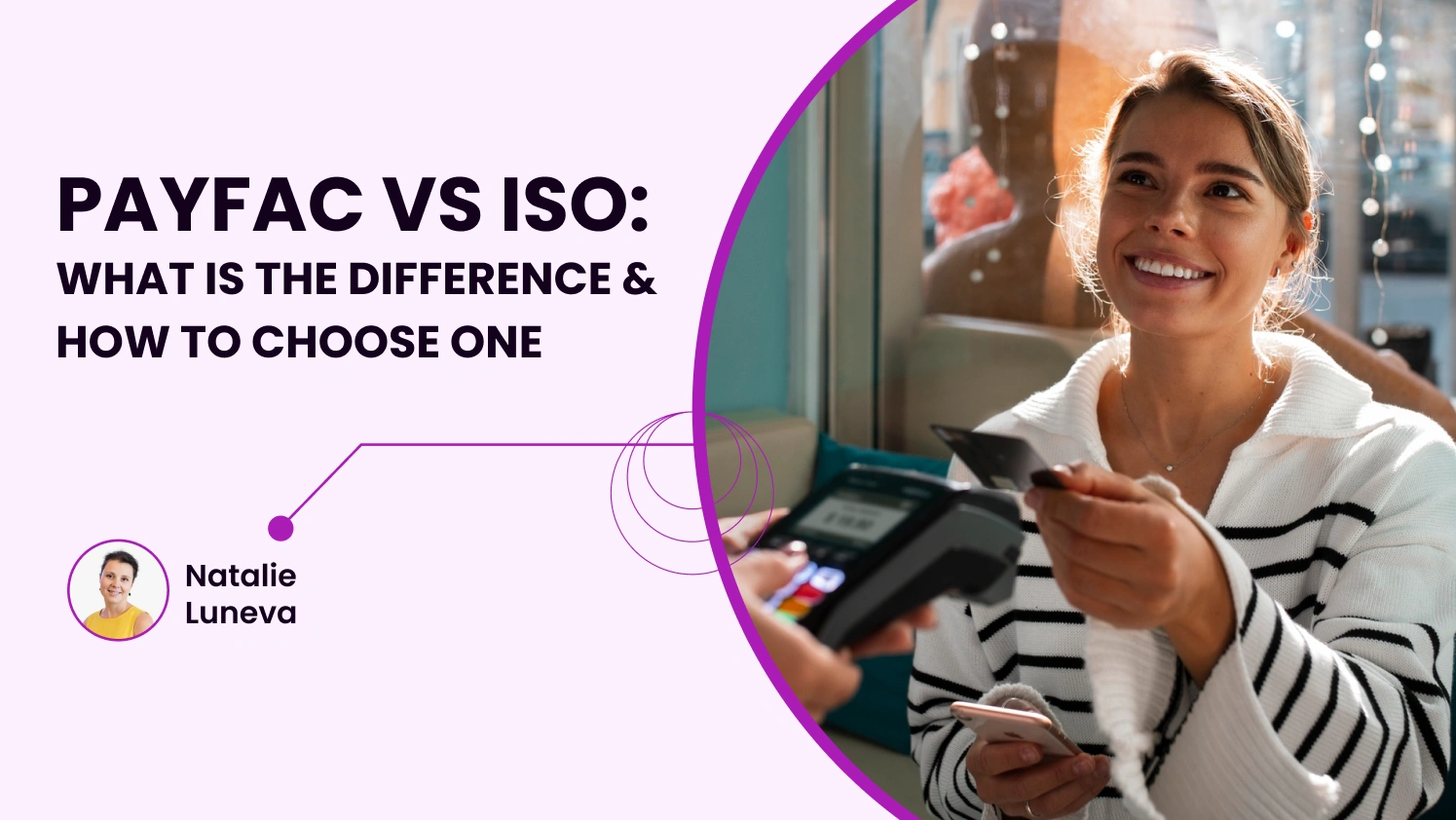Did you know that by 2025, the global gross payment volume processed by payment facilitators is projected to exceed $4 trillion? As businesses increasingly rely on diverse payment processing solutions, you should understand the distinctions between Payment Facilitators (PayFacs) and Independent Sales Organizations (ISOs).
In this article, we’ll look into the key differences between PayFacs and ISOs, allowing you to make informed decisions that align with your specific needs. When you grasp these distinctions, you can navigate the world of payment processing more effectively and ensure that your business is equipped for future growth.
Key Takeaways
- Understanding the roles of PayFacs and ISOs helps in effective payment processing.
- PayFacs enable faster onboarding for merchants compared to ISOs.
- ISOs often offer more flexibility in terms of services and pricing.
- Choosing the right payment provider can lead to significant business benefits.
- Consider your business model when deciding between a PayFac and an ISO.
What Is a Payment Facilitator (PayFac)
A Payment Facilitator, or PayFac, is a company that makes it easy for businesses to accept electronic payments. They handle the hard parts of payment processing, so businesses can focus on what they do best. This way, PayFacs make the payment process simpler.
PayFacs offer a complete solution for payment needs. They manage everything from processing payments to fighting fraud. They work under a big merchant account, grouping many businesses together. This means each business doesn’t need to set up its own account with banks or card networks.
This setup is especially good for small businesses. It makes it easy and fast for them to start taking payments. Companies like Stripe and PayPal are examples of PayFacs. They give merchants a quick way to start accepting payments without dealing with the usual banking hassles.
What Is an Independent Sales Organization (ISO)
An Independent Sales Organization (ISO) helps businesses of all sizes get credit card processing services. ISOs work with banks and payment processors to give businesses access to merchant accounts.
ISOs offer unique services that set them apart. They create custom merchant accounts for each business. This gives businesses more control over their transaction agreements.
ISOs also provide important services like transaction processing and equipment sales. They offer customer service support, too. This is great for big businesses with lots of transactions. ISOs can help find better deals, as they work with multiple processors.
Difference Between PayFac and ISO
Both Payment Facilitator (PayFac) and an Independent Sales Organization (ISO) help businesses accept credit card payments, but they operate very differently in terms of structure, onboarding, support, and pricing.
Merchant Accounts
ISOs (Independent Sales Organizations) offer individual merchant accounts to each business. This means your company gets a unique merchant ID, which can lead to more tailored pricing, risk assessment, and support. Because each business goes through a full underwriting process, it often results in better long-term rates and custom terms. However, this also means a longer setup time and more paperwork.
PayFacs (Payment Facilitators), like Stripe or Square, use a shared merchant account model. Your business operates as a sub-merchant under the PayFac’s master merchant account. This speeds up the onboarding process dramatically—often allowing businesses to start accepting payments within minutes. However, since you’re not being individually underwritten, you may face restrictions on transaction volume, and rate negotiations are typically not possible.
Customer Base and Services
ISOs usually serve medium to large businesses that need robust, flexible, and customizable payment processing solutions. They can provide advanced features like custom POS systems, recurring billing, Level 2/3 data processing, and specialized customer support. ISOs are also better equipped to support high-risk or high-volume merchants who require detailed compliance and risk management solutions.
PayFacs are better suited for startups, small businesses, and digital-first companies that want a fast, plug-and-play solution. They simplify everything from account creation to compliance and fraud management. Services like chargeback handling, reporting tools, and built-in fraud detection are often bundled into their platforms, making them ideal for businesses with limited technical resources or smaller transaction volumes.
Pricing
ISOs offer interchange-plus pricing or tiered pricing, which can be more cost-effective for businesses with high transaction volumes or complex needs. These pricing models are negotiable and can scale with your business, but they may require a good understanding of processing fees to manage effectively.
PayFacs, in contrast, offer flat-rate pricing, which is easy to understand and predictable. For example, you might pay 2.9% + $0.30 per transaction across the board. While this simplicity is attractive to new or low-volume businesses, it may become costly as your transaction volume grows, especially if your average ticket size is high.
| Aspect | PayFac (Payment Facilitator) | ISO (Independent Sales Organization) |
| Merchant Account | Sub-merchant under a master account | Individual merchant account per business |
| Onboarding Time | Fast – can be instant or within hours | Slower – may take several days due to underwriting |
| Customization | Limited customization | High customization based on business needs |
| Ideal Customer Base | Small businesses, startups, low-volume merchants | Mid-size to large businesses, high-volume or high-risk merchants |
| Services Offered | Basic services bundled (e.g., fraud detection, chargeback management) | Advanced solutions (e.g., Level 2/3 data, custom POS, recurring billing) |
| Pricing Model | Flat-rate pricing (e.g., 2.9% + $0.30) | Negotiable (interchange-plus or tiered pricing) |
| Cost Efficiency | Better for low volume, simple operations | Better for high volume and complex needs |
| Risk Management | Standardized and managed by the PayFac | Customized risk profiles and fraud controls |
| Technical Integration | Plug-and-play APIs and dashboards | Often requires integration with third-party systems or custom setups |
| Support | Generalized, often self-service | Dedicated support tailored to business type |
Do You Need a PayFac or an ISO
Deciding between a PayFac or ISO depends on your business needs. You need to think about your business size, how many transactions you handle, and how much control you want over payments. Big businesses with lots of transactions might prefer an ISO for its flexibility and cost savings.
Smaller businesses might like a PayFac for its easy setup. It’s great for getting started fast. Consider if you need ongoing support and how complex your transactions are. This will help you decide between PayFac or ISO.
| Factor | PayFac | ISO |
| Business Size | Best for small to medium businesses | Ideal for larger businesses |
| Transaction Volume | Lower to moderate transaction volumes | High transaction volumes |
| Onboarding Process | Streamlined and quick | More complex, may take longer |
| Control Over Transactions | Limited control | Greater control and customization |
| Customer Support | Ongoing support available | Comprehensive support options |
Get Expert Payments Advice from SaaS Coach
Working with experts in payment processing can give you key insights. A SaaS coach offers specialized services to help businesses. They provide expert advice tailored to your needs.
With us, you get help with payment processing details. We will guide you through negotiations with ISOs or PayFacs. This support helps create a payment system that fits your business goals.
Think about using SaaS solutions to make payment processing easier. With the right help, your business can make smart choices. These choices can help your business grow and stay strong.
Conclusion
Both Payment Facilitator (PayFac) and an Independent Sales Organization (ISO) are important in the payment world but meet different business needs. This includes size, how many transactions you do, and how much control you want over payments.
The article has shown the main differences between PayFacs and ISOs. This includes how merchant accounts are set up and the types of customers each serves. Knowing these differences helps you choose the best option for your business.
As the payment world changes, keep checking if PayFacs or ISOs are still the best fit for you. Staying up to date ensures you have the right payment solutions for your business.


